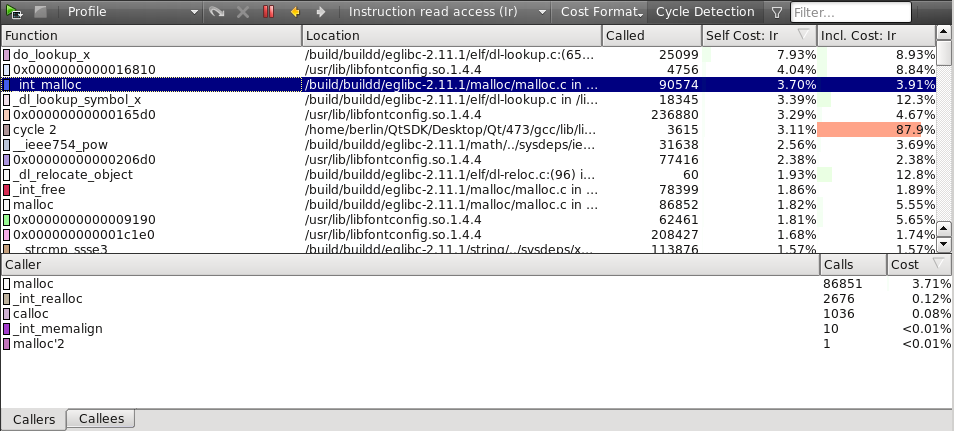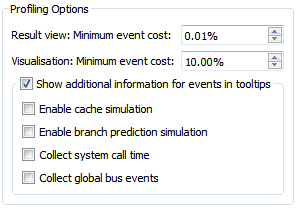- Accueil Actualités IT Pro
- Conception Cycle de vie du logiciel
- Java Plateforme et langage Java
- .NET Microsoft Framework .NET
- Dév. Web Développement Web et Webmarketing
- EDI Environnements de Développement Intégré
- Langages Langages de programmation applicatifs
- SGBD Systèmes de Gestion de Bases de Données
- Office Bureautique pour l'entreprise
- Solutions d'entreprise Autres logiciels pour l'entreprise
- Applications Applications logicielles
- Systèmes Logiciels et matériels systèmes
Profiling Function ExecutionYou can use the Callgrind tool included in the Valgrind tool suite to detect problems that are related to executing functions. After you download and install Valgrind tools, you can use Callgrind from Qt Creator. Note: Callgrind is supported locally on Linux and Mac OS. You can run it on a remote host from Windows. To analyze applications:
Callgrind records the call history of functions that are executed when the application is run. It collects the number of instructions that are executed, their relationship to source lines, the relationships of the caller and callee between functions, and the numbers of such calls. You can also use cache simulation or branch prediction to gather information about the runtime behavior of an application. Double-click a function to view information about the calling functions in the Callers view and about the called functions in the Callees view. To specify settings for Valgrind, select Tools > Options... > Analyzer. The Profiling Options group contains Callgrind options. In the Result view: Minimum event cost field, limit the amount of results the profiler gives you to increase profiler performance. You can collect information about the system call times and the number of global bus events of the event type Ge that are executed. By default, only instruction read accesses (Ir) are counted. To fully simulate the cache, select the Enable cache simulation check box. This enables the following additional event counters: To enable the following additional event counters, select the Enable branch prediction simulation check box: [Previous: Detecting Memory Leaks] [Next: Running Valgrind Tools Remotely] © 2008-2011 Nokia Corporation and/or its subsidiaries. Nokia, Qt and their respective logos are trademarks of Nokia Corporation in Finland and/or other countries worldwide. All other trademarks are property of their respective owners. Privacy Policy Licensees holding valid Qt Commercial licenses may use this document in accordance with the Qt Commercial License Agreement provided with the Software or, alternatively, in accordance with the terms contained in a written agreement between you and Nokia. Alternatively, this document may be used under the terms of the GNU Free Documentation License version 1.3 as published by the Free Software Foundation. X
|




















 button to start the application.
button to start the application. button to view the results of the analysis in the Profile view.
button to view the results of the analysis in the Profile view.
